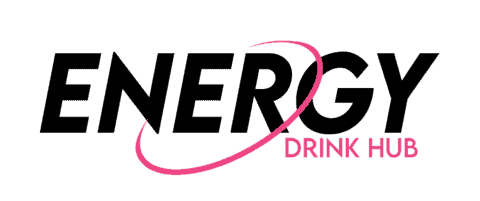You might wonder what electrolytes have to do with energy drinks and how they play a vital role in our body functioning correctly. Well then, let me inform you.
Electrolytes are electrically charged minerals and substances that assist your body in performing many functions, such as creating energy and contracting muscles. Electrolytes include sodium, chloride, potassium, and calcium.
Electrolytes are basically charged ions that provide the medium for your body to carry out its functions.
Simply put, you need electrolytes in your system if you want your body to work correctly – and even better, optimally.
Energy drinks contain electrolytes. They support the surge of energy generated by the presence of caffeine.
Electrolytes operate by keeping your body hydrated, which reduces the likelihood of you becoming exhausted, especially when participating in vigorous activities. It also ensures that your nerves and muscles work correctly. All of this helps you to feel more energized.
Continue reading to learn about the benefits of electrolytes and which energy drinks contain electrolytes.
Page Contents
What are Electrolytes?
When electrolytes are combined with water, they conduct an electrical charge. They have a role in a variety of vital bodily functions, including neuronal signaling, pH balance, muscular contraction, and hydration.
Sodium, potassium, magnesium, calcium, phosphorus, chloride, and bicarbonate are the major ions that are responsible for dealing with these essential functions.
Electrolyte concentrations in your blood and other physiological fluids are kept within a relatively slim volume. Serious health problems can occur if your electrolyte levels become too high or too low.
Sweat and other waste products naturally lose electrolytes and fluids daily. As a result, it’s critical to regularly provide your body with a mineral-rich diet.
Certain activities or conditions, such as strenuous exercise or bouts of diarrhea or vomiting, can cause you to lose more electrolytes, necessitating the inclusion of an electrolyte drink in your daily routine.
The function of Electrolytes in an Energy Drink?
While electrolytes provide an electrical charge to your body, they do not provide you with a direct burst of energy.
Energy drinks that are rich in minerals aid in replenishing water, electrolytes, and energy lost during physical activity. These drinks frequently include a supply of energy-boosting carbs and a balance of potassium, salt, magnesium, and calcium, all of which aid in dehydration, glycogen replenishment, and tiredness prevention.
“When picking a sports drink for a particularly sweaty workout—or over an hour of exercise,” says registered dietitian Isabel Smith, MS, RD, CDN, “I recommend looking for a beverage containing at least 300 milligrams of potassium and at least 80 milligrams of salt.”
The way electrolytes operate is that they keep your body hydrated, which means you’ll be less weary, especially if you’re doing vigorous activities.
It also ensures that your nerves and muscles work correctly. All of this helps you to feel more energized.
What to look for in Energy Drinks that contain Electrolytes?
Form
Ready-to-drink liquids, powders, and pills are all forms of energy-providing products. A ready-to-drink energy drink is usually available at any grocery or convenience shop if you want an easy, grab-and-go option.
A tablet or powder that you combine with water may be preferred if you travel regularly or simply want a more portable sports drink.
Electrolytes
Your body loses fluid and electrolytes when you sweat. Electrolytes, such as potassium, sodium, magnesium, and calcium, are found in sports beverages to aid in counteracting dehydration.
They act with your body to increase fluid absorption and mineral replenishment. Look for an energy drink that has at least sodium and potassium.
Calories
You might require a calorie-dense sports drink if you’re doing endurance activities or rigorous sports.
Consider your degree of activity, caloric consumption, and energy requirements while selecting a sports drink. If you’re training for a marathon, you might want to go for a calorie-dense sports drink.
If you’re exercising for more than an hour and trying to lose weight, you may want to replenish electrolytes without adding calories to your diet.
There is a wide range of drinks; some are zero-calorie, explicitly structured for the diet-conscious and people looking to lose weight.
Then there are also energy drinks like Monster that serve up to 200 calories a serving, ensuring you never run out of “energy” in the form of calories.
Sugar
Sugar is added in many sports drinks to help athletes quickly replace carbohydrates lost during activity.
Some tablets and powders are low in sugar if you watch your sugar intake or prefer a sugar-free option. Avoid sugar-free sports drinks that include artificial sweeteners, which can be dangerous.
Finally, the American Heart Association (AHA) recommends that women consume no more than 24 grams (6 teaspoons) of added sugar per day, and men consume no more than 36 grams (9 teaspoons) per day.
Do Electrolytes make you feel Hydrated?
Yes, electrolytes aid in keeping you hydrated and refilling your physiological fluids.
Electrolytes are essential if you’re continuously sweating, either from working out or from illnesses such as severe vomiting, diarrhea, or fever.
You must ingest enough fluids to be hydrated, which you can obtain from ordinary water, vegetables, and 85–95 percent water fruits.
For energy drinks, there is no set RDA (Recommended Daily Allowance). However, there are defined guidelines for overall water consumption for healthy people.
The Institute of Medicine (IOM) advises that males consume 3.7 liters (125 ounces) of water per day and women consume 2.7 liters (91 ounces) of water per day from both foods and beverages.
For people under the age of 18, the DRIs for total water intake (from food and beverages) are as follows:
| Years of age | Daily Intake (Girls) | Daily Intake (Boys) |
| 4-8 years | 7 cups/day | 7 cups/day |
| 9-13 years | 9 cups/day | 10 cups/day |
| 14-18 years | 10 cups/day | 14 cups/day |
It’s crucial to remember that proper fluid intake varies by age, gender, degree of activity, environment, lifestyle, and overall health.
What happens when your body is deprived of Electrolytes?
The majority of people will never experience these symptoms due to a lack of electrolytes, but if your levels drop below low, you could face the repercussions. On the other side, having too many electrolytes isn’t healthy too.
When you don’t have enough electrolytes in your system, the following are the adverse effects:
- Lethargy
- Irregular Heartbeat
- Vomitting
- Constipation
- Numbness
- Headaches
- Convulsions
Best Energy Drinks with Electrolytes
Though many energy drinks contain electrolytes, the following are my best picks:
Rowdy Energy Drink
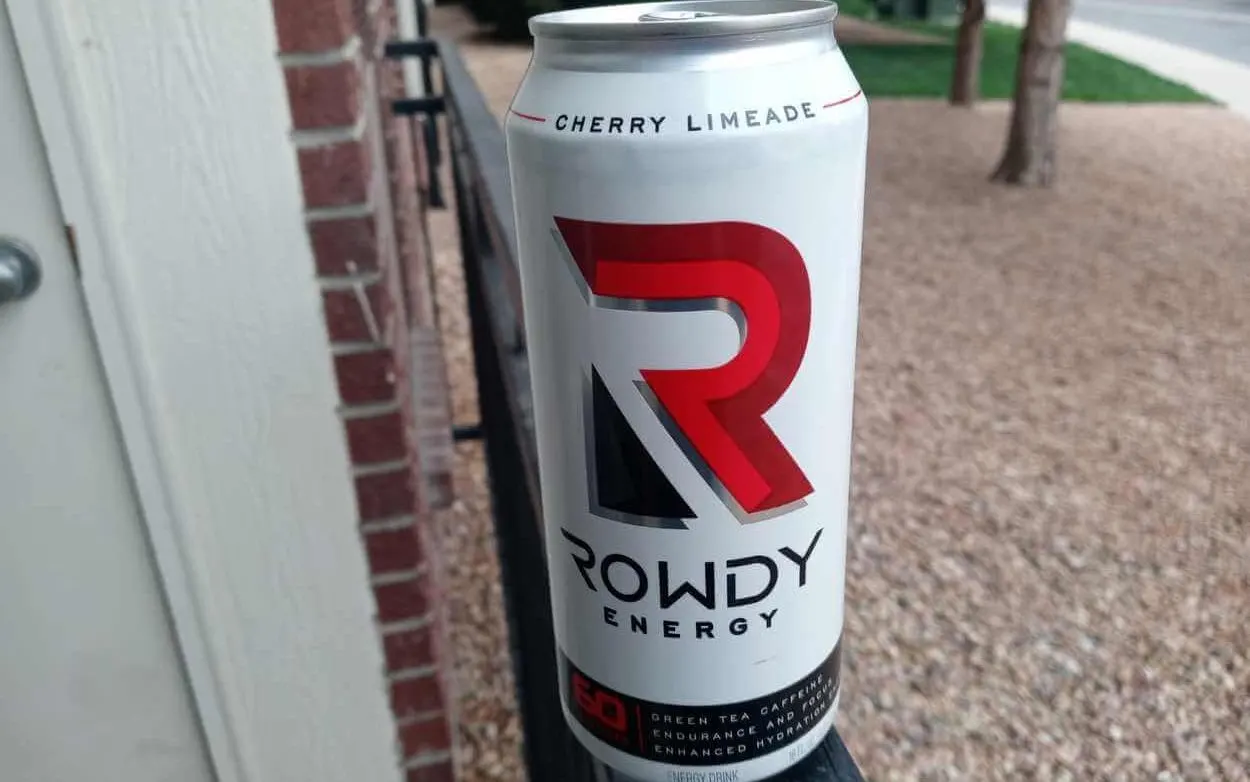
Rowdy provides long-lasting energy for staying hydrated. A can of Rowdy has over 12 times the potassium of the leading traditional sports drink per ounce but only a quarter the salt of the leading electrolytes in a drink.
Natural ingredients are used in Rowdy energy drinks to make a better-for-you energy drink. This sugar-free beverage is vitamin-infused for immune support, plant-based, keto-friendly, vegan, and contains 0g of sugar and only 5 calories, making them a tremendous zero-sugar energy drink.
It combines 160mg of natural caffeine with the nootropic L-Theanine derived from Green Tea to give you prolonged focus and a powerful lift without the irritating crash.
This recipe has no artificial sweeteners, colors, flavors, or preservatives. Instead, they use real fruit juice concentrates for a true-to-life flavor that will keep you energized, hydrated, and focused all day.
Raze Energy Drink
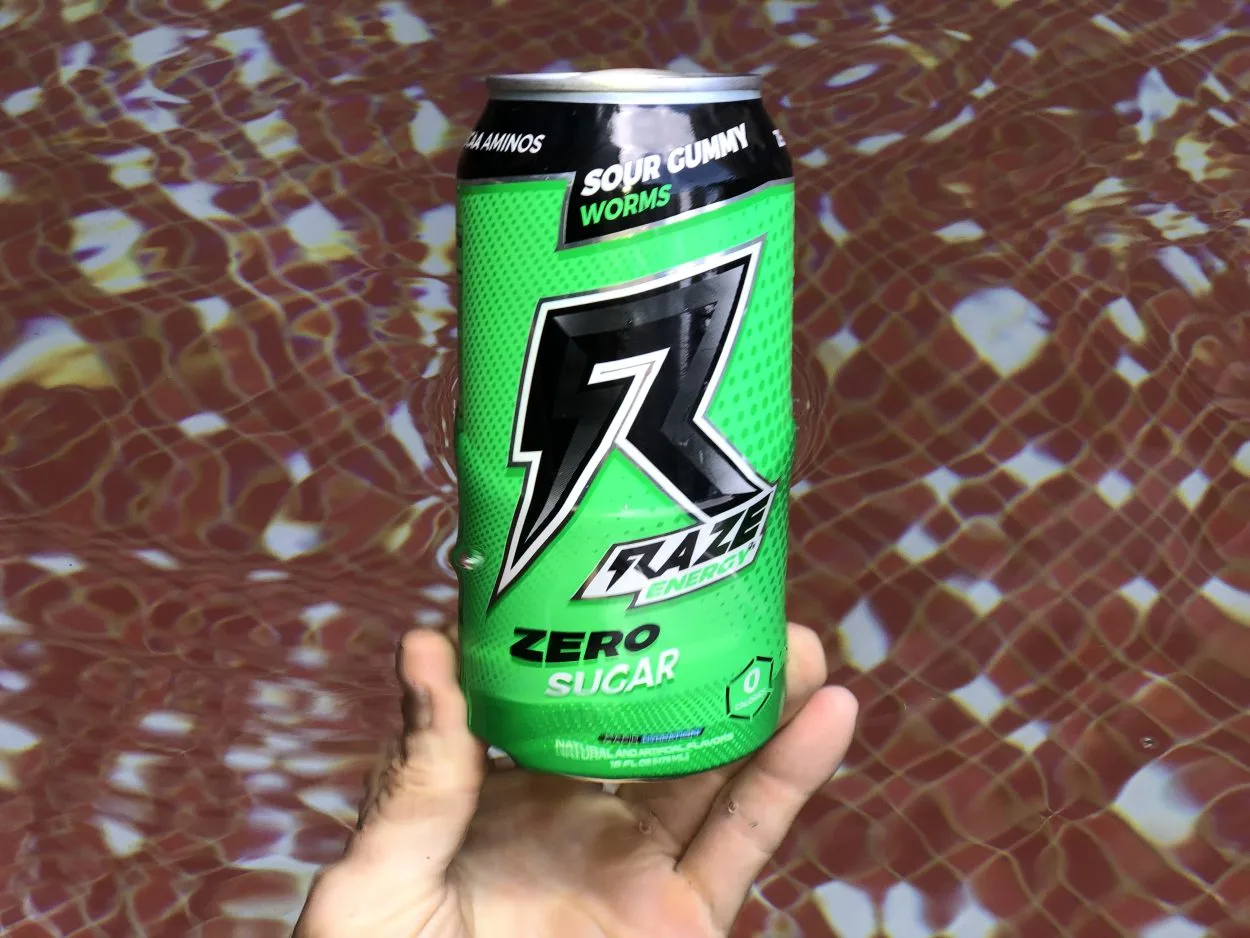
Raze energy takes a huge risk by introducing a high-quality recipe to provide the user with a powerful yet long-lasting, energetic experience that will help you take your workouts and focus to the next level.
It consists of powerful electrolytes like potassium and sodium. It is sugar-free, carb-free, crash-free, and jitter-free. We all need a little additional boost, whether it’s before a workout or first thing in the morning. Get the energy drink you want without sacrificing quality.
Raze Energy Drinks give you a burst of energy followed by a smooth wave of time-released caffeine anhydrous and caffeine citrate, giving you a sharp mental state that no competition can match.
It’ll help your body carry a controlled release of 300mg of caffeine to keep you going throughout the day and during workouts.
XS Energy Drink
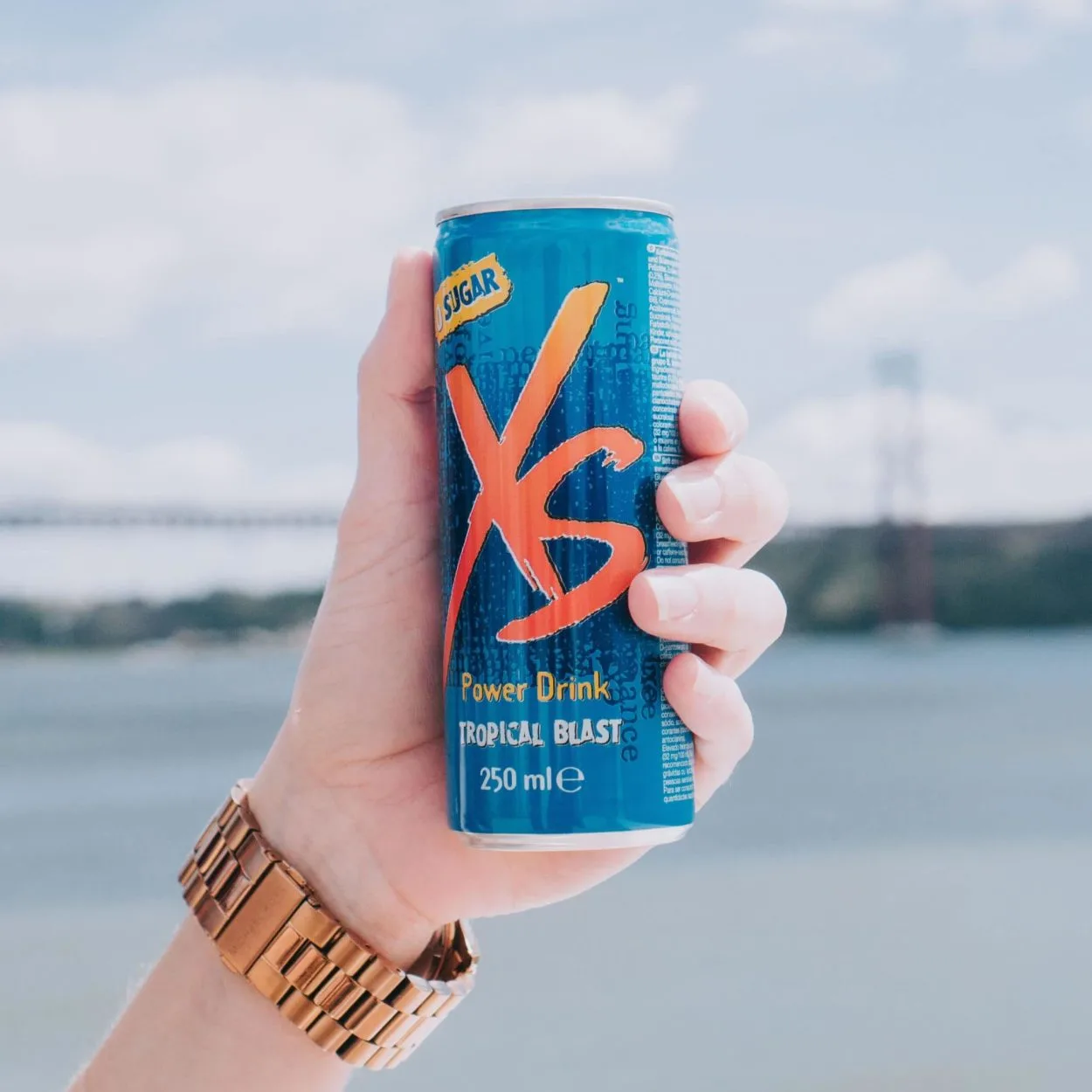
In the United States, Amway manufactures and distributes XS Energy, which is unique in that it comes in a variety of flavors in ordinary 8.4 fl. oz cans.
To assist your body unlock energy from food, XS Caffeine-free Energy Drinks contain a specific blend of premium ingredients combined with potent B vitamins. Potassium and sodium are among the electrolytes found in them.
It has no sugar, no carbohydrates, and only 10 calories per 8.4 oz. can. Single-serve cans are convenient to grab and go when you need energy.
Other Electrolyte Rich Drinks to Consume
Electrolytes are not only found in energy drinks but also in other organic drinks. You might want to add these 3 electrolyte-rich beverages to your health and wellness toolkit.
Coconut Water
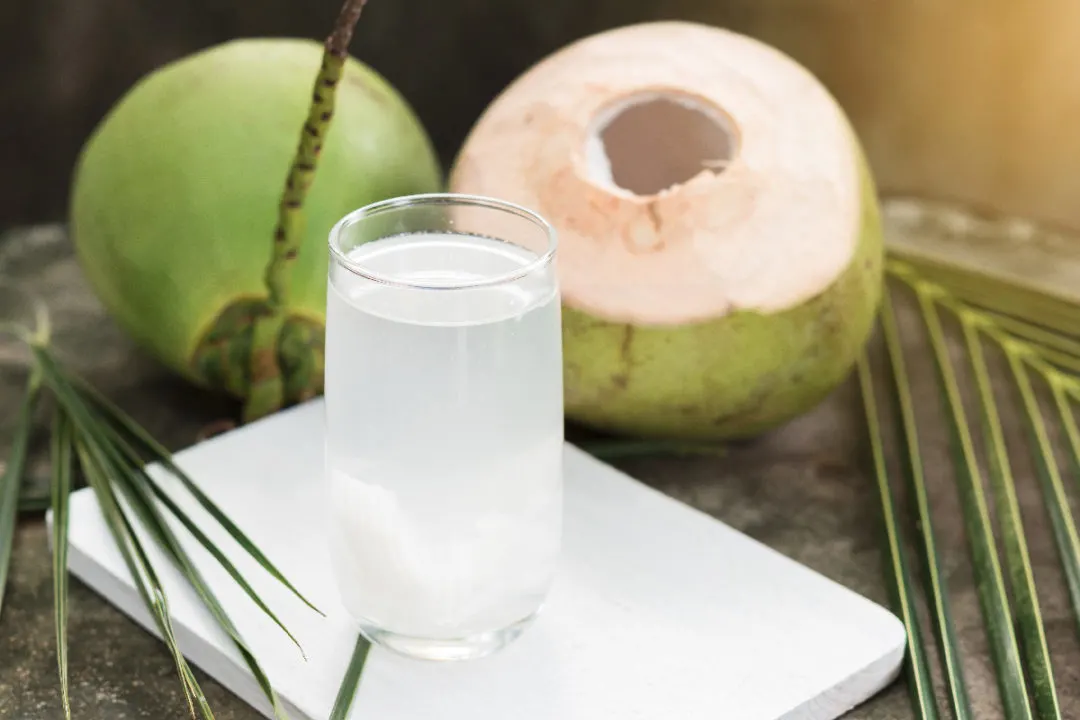
The clear liquid inside a coconut is known as coconut water or coconut juice.
It has become one of the most popular beverages on the market in recent years, and it is now bottled and marketed all over the world.
Coconut water includes a range of electrolytes, including sodium, potassium, calcium, and magnesium, and is naturally low in sugar.
It’s also a healthier option for sodas, juices, and typical sports drinks, with 46 calories per cup (237 ml).
Milk
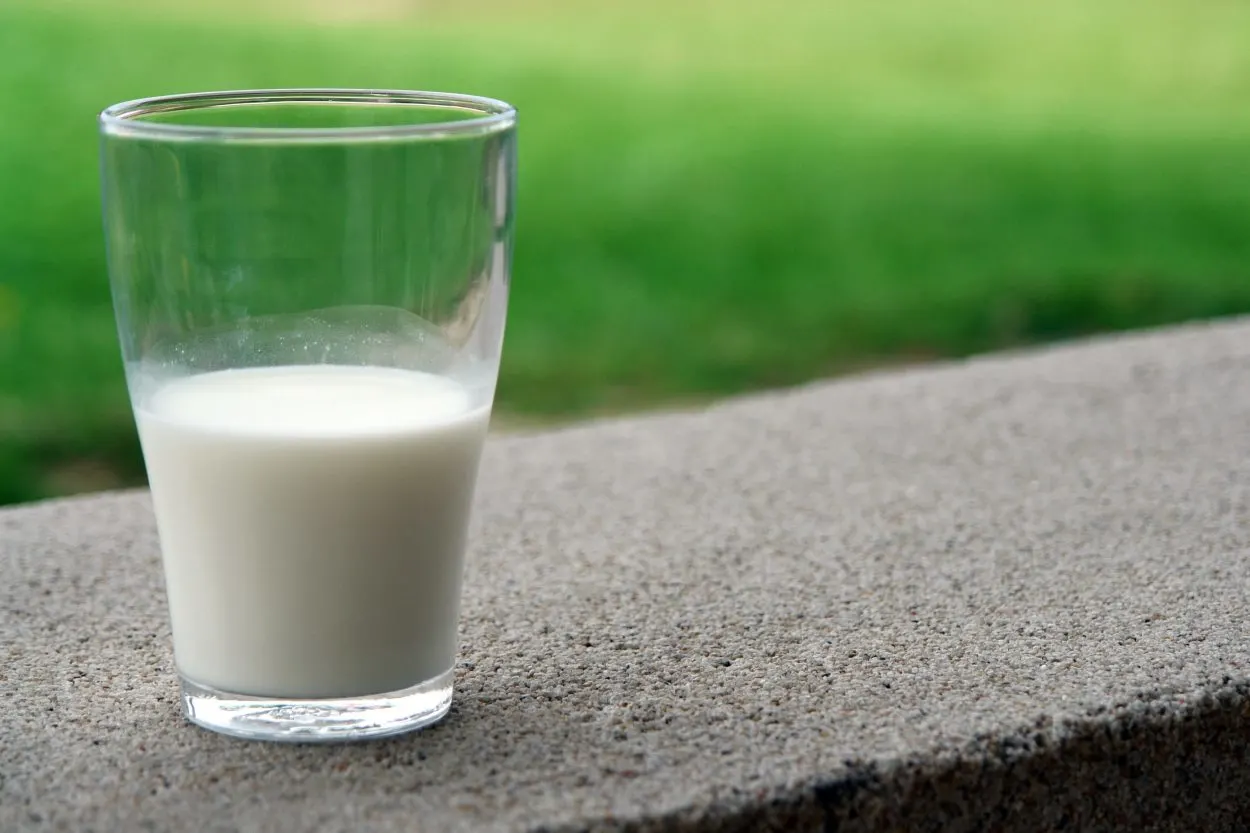
Cow’s milk is a bit of an underappreciated hero when it comes to electrolyte drinks. According to common opinion, milk can be used for a lot more than breakfast cereal or coffee. Milk is a well-reputable drink in almost every culture and area of the world, and it’s no surprise.
Milk has a balanced combination of carbs and protein, as well as electrolytes such as calcium, sodium, and potassium. After an exercise, these two macronutrients can help you refuel and encourage muscular tissue regeneration. Some people even go as far as classifying milk as a “super-food” due to the sheer amount of nutrition it has.
Since the advantages of milk are driven by its electrolyte, carbohydrate, and protein levels, you can choose whole, low-fat, or skim milk based on your preferences.
Choose a lactose-free option if you’re lactose intolerant but still want to include milk in your workout recovery routine.
Meanwhile, if you follow a vegan diet or have a milk protein allergy, you should avoid milk.
Watermelon Water
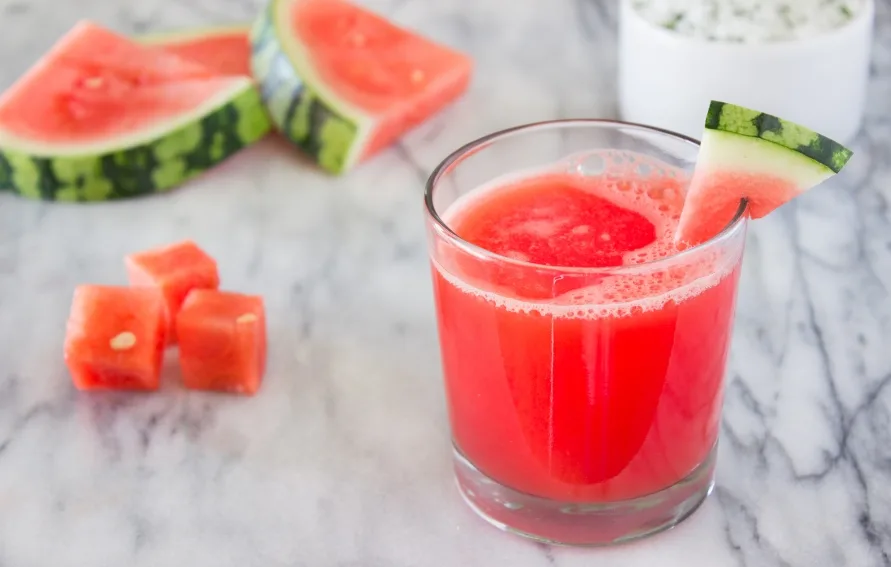
Watermelon water is simply the juice from a watermelon, despite the name suggesting a different concoction.
Potassium and magnesium are about 6% of the Daily Value (DV) in one cup (237 ml) of 100 percent watermelon juice, with tiny levels of other electrolytes like calcium and phosphorus,
L-citrulline is also found in watermelon juice. This amino acid, when taken in supplemental quantities, may help with oxygen transport and athletic performance.
However, current research suggests that the amount of L-citrulline in ordinary watermelon juice is unlikely to have any discernible influence on exercise performance.
Electrolytes can also be found in other types of fruit juice. Potassium, magnesium, and phosphorus are found in orange, and sour cherry juice is some examples.
Conclusion
Electrolytes are minerals that aid hydration, muscle contractions, pH balance, and nerve signaling in the body. Your body must have enough fluid and electrolyte levels at all times to function correctly. Coconut water, milk, fruit juice, and sports drinks can all help you stay hydrated and maintain your electrolyte balance, alongside a few energy drinks that can be electrolytes.
Most people can keep their electrolyte levels in check with a well-balanced diet and plenty of water. However, electrolyte drinks may be necessary for specific circumstances, such as if you’re losing a lot of fluid quickly due to sweating or illness.
You can evaluate whether or not adding an electrolyte beverage to your regimen is good for you by drinking lots of water and checking for early indications of dehydration.
